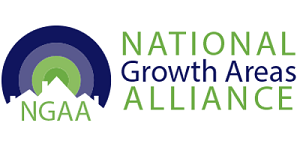News
 Media Release 3 September 2020
Media Release 3 September 2020
Outer suburbs facing an avalanche of mortgage defaults and financial stress
Australia’s outer urban growth areas are facing an avalanche of mortgage defaults and financial stress amidst a recession, shrinking levels of income support and the end of mortgage repayment moratoriums. The National Growth Areas Alliance (NGAA) is today calling on the Federal Government and National Cabinet to focus on the great need in growth areas for job creation and other economic investment, along with long term shifts in cities policy.
In a growth areas economic summit held today, councils representing the 5 million people who live in the outer suburbs of Australia’s major cities heard that mortgage stress and rental stress levels are already high in outer urban areas, with some postcodes witnessing 90% of home owners under significant financial stress.
“Growth areas already experienced a significant level of mortgage stress before COVID-19. Job losses, the economic downturn and mortgage moratorium whiplash will compound financial stress in already vulnerable communities,” said NGAA Chair, Cr Matt Deeth (Mayor of Wollondilly Shire Council, NSW).
“Reaching the point where a household defaults on their mortgage or can no longer pay their rent doesn’t happen overnight. Those households will be accumulating more debt, trying to keep a roof over their heads while they deal with unemployment, underemployment and the widespread effects of the pandemic and recession,” said Cr Deeth.
During the summit, Martin North, Digital Finance Analytics, said that:
- Young families, and urban fringe households are feeling the financial pinch the most, whether they are mortgaged, renting or investing. This includes significant numbers of first-time home buyers.
- More than 60% of urban fringe households are in mortgage stress
- The post codes with the largest numbers of stressed households are areas of high volumes of growth and construction, where households typically have large mortgages and other forms of debt, with little resources to get out of debt.
- One of the worst affected areas is Melbourne’s south east (postcode 3806) including Harkaway and Berwick. There are 17,000 households, 90% of homeowners are in mortgage stress and 60% of renters in difficulty.
- In Victoria, postcode 3029 (includes Hoppers Crossing, Truganina and Tarneit) there are 30,000 households. 66% of those who rent are in rental stress. Mortgage stress is 34% - more than 6000 households.
- In Werribee and Point Cook (postcode 3030) – 7,800 of 26,000 households are in mortgage stress. The scale and number of households affected is vast.
- In NSW, postcode 2170 (Liverpool area) has 35,000 households with 56% of those borrowing in mortgage stress and 54% of renters under financial stress.
- In Sydney’s south west, postcode 2567 (Camden Council area) 12,000 households, 64% in mortgage stress and 70% of those renting under stress
- All these lead to lower house prices, risking negative equity if and when owners need to sell their house.
- Matthew Martin, WEstJustice, said that WEstJustice are preparing for an avalanche of people needing legal, financial counselling and other assistance when mortgage moratoriums end. While the short-term respite of mortgage moratoriums assists clients today, there is limited understanding of the flow on effects of deferred debt and the potential for a shortfall if the owner needs to sell the property.
- Kelly Grigsby, Wyndham City Council CEO, said that while councils are dealing with immediate community need and service delivery changes, longer term, critical policy discussions about city planning and economic justice must also occur so that we can build back better, especially for vulnerable communities. We can learn from positive consequences such as our experience showing the benefits of remote working for outer suburban residents.
Twenty percent of Australia’s population lives in the outer suburbs. They already experience high mortgage stress, high transport costs, long commutes and limited access to the services and facilities that others take for granted.
“This problem is just starting to unfold and is much deeper than it appears. We must focus on outer urban growth areas in economic investment and job stimulus plans or risk further entrenching disadvantage, through mass mortgage defaults, higher unemployment, reduced access to affordable housing and worsening infrastructure deficits,” said Cr Deeth.
**
Watch video of economic summit here: https://youtu.be/8Ay3mWTPGPY
The NGAA represents Councils from outer urban growth areas around Australia’s major cities, home to more than 5 million people. www.ngaa.org.au
Digital Finance Analytics combines primary consumer research, industry modelling and economic analysis to offer insight into the mortgage lending and financial industries.
WEstJustice community legal centre provides free legal help to people in the Western suburbs of Melbourne for problems including debt and tenancy issues.
Wyndham City Council in Melbourne’s outer south west is one of the fastest growing, culturally diverse and youngest municipalities in Australia.
More News
Game-Changer for Outer Suburbs: NGAA Celebrates Suburban University Study Hubs Announcement
28 . 11 . 2024 Read morePopulation Boom & Gloom: Infrastructure Funding Fails Fastest Growing Communities
22 . 11 . 2024Announcement from NGAA Chair Cr Deeth
26 . 09 . 2024Announcement from NGAA Chair Cr Deeth, Deputy Mayor Wollondilly Shire Council.
Read moreThe Case for a Unified Urban Policy: Insights from Bronwen Clark at UDIA WA
04 . 09 . 2024Recently our CEO, Bronwen Clark, was invited to speak at the Urban Development Institute of Australia Western Australia (UDIA WA) event in Perth. Themed A Shared Vision for Urban Growth in our Cities: Understanding the Draft National Urban Policy and What It Means for Perth, this event brought together 200 WA town planners and developers from the private and public sectors.
Read more
